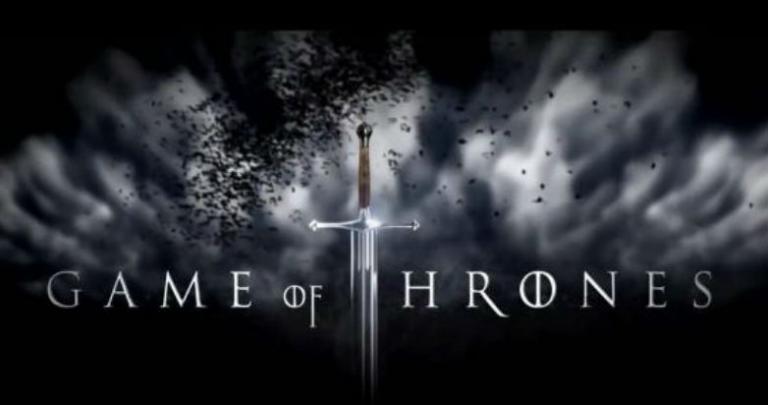Back in 2011, I got the first few episodes of HBO’s Game of Thrones — starting its eighth and last season on Sunday, April 14 — watched them, and wrote about them in my blog at the time, Hot Cuppa TV. Since then, I’ve watched a few more (mostly at premieres, with GOT fan pals). Nothing has changed for me.
Your results may vary.
Part 1 (from April 1, 2011)
I am no science-fiction or fantasy virgin. I’ve loved genre TV, books and movies since I was a kid, from Star Wars and Star Trek, to Battlestar Galactica and The X-Files, to Alien and Outland, to The Hitchhiker’s Guide to the Galaxy, The Dragonriders of Pern and The Stainless Steel Rat series, to lots of stuff by Philip K. Dick, Isaac Asimov, Ursula K. LeGuin, Larry Niven and Ray Bradbury.
But you may notice that there’s not a lot of high fantasy on that list (Pern has its fantasy elements, but it does have a science-fiction underpinning). I couldn’t get past The Hobbit to any of the other Tolkien novels (though I have watched the LOTR movies — can’t resist awesome spectacle, pretty Orlando Bloom and prettier horses).
Loved LeGuin, but never went near the Earthsea books, and scrolling down a list of the collected works of George R.R. Martin, I appear to have quite possibly not read any of them.
(May have read the novelette Sandkings in a science-fiction and fantasy college course; can’t remember for sure.)
But, I have seen Martin’s “Twilight Zone” episodes, and I was an ardent fan of his work on the TV series Beauty & the Beast.
Why should this be? I enjoy mythology and hero tales of all sorts, from ancient Egypt to Holy Grail (with and without Monty Python), but you put me in pure fantasy setting and throw Princess SilverMoon, or the Dark Lord of Shadow Mountain, or the Misty Marshes of the Far Reaches … blah blah blah … at me, and I just start to giggle.
Make me stay there too long, and I’ll start to slide over sideways with my tongue lolling out (actually did this in the movie theater during the endless endings of the last Lord of the Rings movie).
As for Game of Thrones, the Martin series of novels which has been made into an HBO series and premieres on Sunday, April 17, I not only have never read it, I had never even heard of it before the HBO announcement.
I now have it in my hot little hands, and while unable to rustle up the slightest bit of interest (despite the presence of, as you can see from the photos, the lovely Sean Bean and a pretty horse), even after seeing the trailer, I will watch it.
Later on this evening (or first thing tomorrow, if I get too sleepy to write coherently), I will return to give you my impressions of however much of it I can get through before I need to start watching Dancing With the Stars.
Until then …
And Part 2 (from April 5, 2011 — it was actually April 2, but the original blog entry has vanished into the electronic ether):
Yesterday, I revealed that I have an issue with high fantasy, but proclaimed my intention, despite being all “meh” about it, to watch HBO’s upcoming fantasy epic Game of Thrones series based on the works of novelist and screenwriter George R. R. Martin.
And then I said I would come back and tell you what I thought. Last night. Or first thing in the morning.
Right now, it is neither of those.
After watching four episodes last night, I wrote a Zap2it post, watched Dancing With the Stars (OMG, poor Maks! But Kirstie still rocked it out. Confused? Click here), checked my Google Reader, wrote some emails and then was just too sleepy to write.
Today, I’m on vacation, so I made breakfast, watched RedEye w/Greg Gutfeld, checked my Google Reader again, wrote some more emails, ironed a shirt (you know things are bad when I start to iron) and was considering starting the laundry — all in the interests of not writing this.
But, I promised, so here goes.
The good news: I didn’t hate it. The production design is gorgeous; the horses are gorgeous; Sean Bean is awesome, and gorgeous. The dialogue is good; the acting is excellent (but then I’m a big Peter Dinklage fan in any setting); and it doesn’t look cheesy (yeah, Starz’ Camelot, I’m looking at you, here).
The bad news: I just don’t care.
I have written before about the importance of caring. It’s usually the reason why I love something or don’t. After four hours of Game of Thrones, the only thing that got me emotionally involved that evening was seeing Kirstie and Maks’ DWTS mishap.
Honestly, it just comes down to my problem with fantasy. To make me care, you have to give me stakes, context, parameters, something solid to hold onto, a reason to root for one side over the other.
In stories based in the real world, even if they’re fictional, they’re still constrained by the way the world works, and depending on your personal history and preferences, you can usually figure out who to root for (but the storyteller can mess with that, if he or she is really good).
If you introduce a supernatural element into that, part of the dramatic tension comes from the contrast between this occurrence and the ordered natural world that we all understand.
To me, the best stories that do that, like Frankenstein, show that messing with Mother Nature has tragic effects. You can supersede nature, but you’ll still pay for your hubris. Or, in other stories, humans triumph over natural catastrophe, but that seldom comes free.
Even Spider-Man and Iron Man pay a steep price for their super-powers (and I love me some Spider-Man and Iron Man).
In the best science fiction — from Dune to Ringworld to Star Trek — the world created is still rooted in reality, even if it’s an entirely created reality. It must have consistent rules; things must exist in context.
If a human character on an alien planet has a golden retriever, he brought it with him, and at some point in the past, both species originated on Earth. We’re not expected to believe that other worlds also evolved human beings and golden retrievers.
(OK, TV science-fiction and movies have often strained this conceit to the limit, especially before the creation of computerized special effects. Sometimes budget constraints just called for a golden retriever, but maybe with wings attached, or a dude with antennae. Novelists have it easier this way.)
But in sword-and-sorcery high fantasy, all bets are off. The worlds often look medieval, but everything in medieval times — from clothes to weaponry to armor to social mores — existed for reasons specific to that period and its political structure and religious beliefs.
Reality is a seamless garment, with everything connected to everything else and obeying specific natural laws. That’s why stories where reality is rent asunder are so compelling. We know the world should be one way, and suddenly it’s not, and that’s terrifying.
The animals in a world also exist in context of that world’s ecology; they don’t just spring up for no reason. Many fantasy worlds have horses and dogs, but also dragons and perhaps prehistoric elephants co-existing with modern animals (as seen in The Lord of the Rings).
Game of Thrones has dire wolves. Now, dire wolf sounds cool, which is maybe why the author used the term, but they’re real, and they only existed in North and South America during the Pleistocene Epoch. Is this North America during the Pleistocene? If so, where are the giant sloths, mammoths and American lions?
Of course, it’s not North America. It’s not anywhere. The world of Game of Thrones is a free-floating patchwork quilt of customs and styles and animals and weaponry from a range of human history, tossed together with a vague sort of religion (“gods” are mentioned) and an ecology of winters and summers that vary wildly in length.
The erratic weather is a big plot point — “Winter is coming” is constantly intoned — but this planetary irregularity is not explained.
But this is fantasy, so you’re not supposed to ask. You can have kings and queens and keeps and knights and horses and extinct dire wolves and winters that last ten years and whatever else there is, just because the author said so.
Even with all this, I can still enjoy a fanciful story if it feels emotionally true, if it follows classic themes of human storytelling — like how the original “Star Wars” trilogy uses the timeless form of the Hero’s Journey — or is an allegory or a metaphor — like how The Chronicles of Narnia is a Christian allegory, with a lion substituting for Christ (OK, I don’t love Narnia, but I got the allegory).
Game of Thrones reminds me of the second Star Wars trilogy, in which the Hero’s Journey was set aside in favor of a complicated tale of political maneuvering and power plays.
I haven’t figured out if Thrones has a larger theme — such as
Frank Herbert’s fascination with ecology, which underpins the political machinations in the Dune books — or if it’s an allegory for something else. So far, it doesn’t seem so. It just seems like characters moving in a landscape, maneuvering for power.I’m just not sure if I care who wins or loses.
Now, I’m not saying fantasy is bad or people shouldn’t enjoy Game of Thrones — different strokes for different folks, and millions of ardent fans can’t be wrong. Obviously this story touches them deeply in a way I just don’t understand.
But for me, in terms of HBO, Boardwalk Empire can’t come back soon enough.
HCTV: Because of a couple of truly filthy comments (we here at HCTV get stupid spam comments on occasion, but these weren’t spam), comments are now closed on both Game of Thrones posts. And to those commenters who wondered why I pointed out that the series is well-made and credited those parts of it that are good, that’s called being fair, which I try to be, even when something isn’t my taste. Thanks for stopping by.Editors Note: One of the comments referenced involved a guy wishing I was … and silverback gorillas. ‘Nuff said.
Enjoy that last season, folks! I’ll be cheering from the sidelines, waiting for HBO to bring back Silicon Valley.
Image: HBO
Don’t miss a thing: head over to my other home, as Social Media Manager at Family Theater Productions; and check out FTP’s Faith & Family Media Blog, and our YouTube Channel.
















